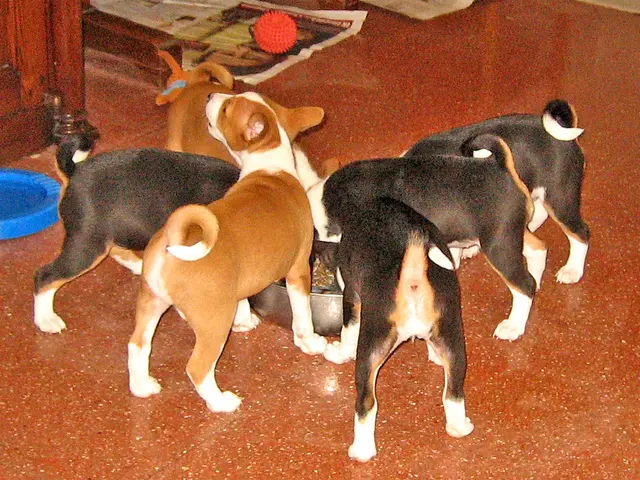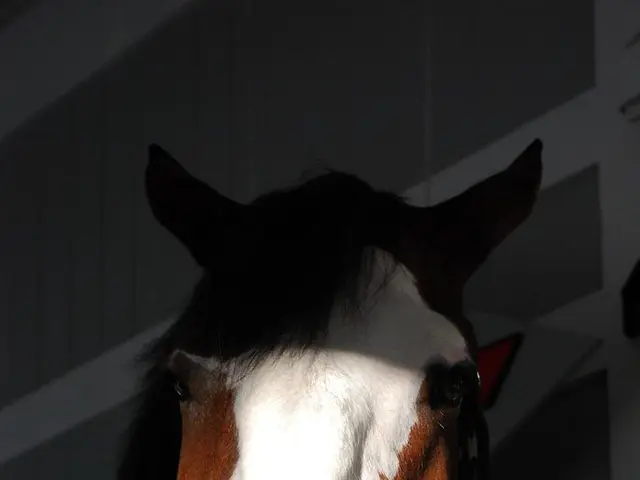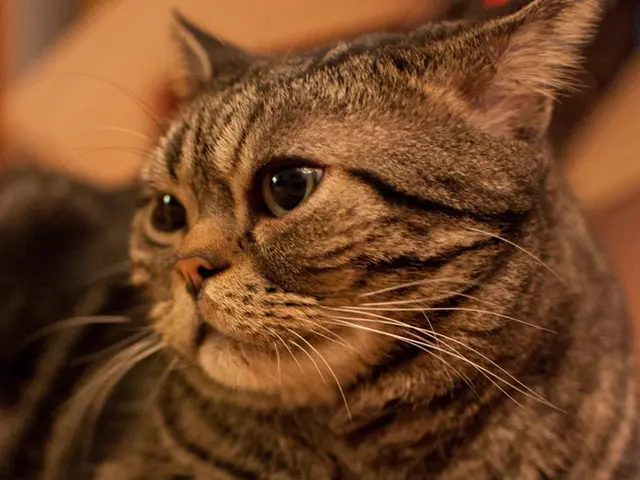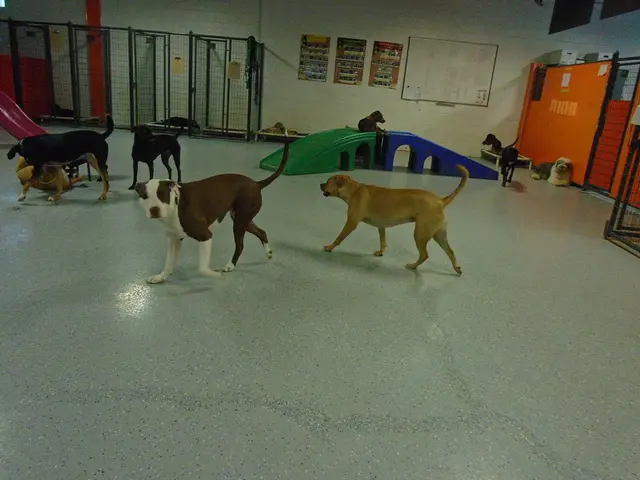"World's First Initiative 'C.A.T.S.C.A.N' Debuts to Aid Cat Owners in Identifying Joint Problems"
Got a feline friend you want to keep purring in peak condition? Well, it's high time we fancy-schmancy cat parents got our paws on some real, honest-to-goodness feline healthcare knowledge. And guess what? The world of animal healthcare's evolving faster than the occasional laser-point-chase-around-the-house, so we've got more tools at our disposal than ever before to cater to our kitty pals' needs.
But here's a scary fact – joint issues happen to our feline buddies way more often than we think. Shockingly, up to 40% of cats experience joint stiffness, and a staggering 90% of felines over 12 years old develop arthritis-related joint changes[4]. Scary, right? And here's the worst part – cats are so masters of camouflage, we might not even realize they're in pain.
Enter the Merry Pranksters of Vet Science – YuMove, the top-dog (no pun intended) vet-recommended joint supplement brand in the UK – who have cooked up a game-changer called C.A.T.S.C.A.N. This bad boy's a tool that lets us detect the not-so-subtle signs of joint stiffness in our cats without ever leaving the couch in a world's first[1].
Collaborating with the one and only Cat the Vet (seriously, look her up – she's got a TikTok following worth ogling), C.A.T.S.C.A.N operates like a virtual cat-CT scan[1] – you simply observe your feline buddy and work your way through the checklist. Easy-peasy.
As Fiona Hope, YuMove's fearless CEO, so elegantly puts it, "A cat slowing down isn't living their best life – these little ninjas are built to climb, run, chase, and nab prey with the precision of a SEAL team." With C.A.T.S.C.A.N, we're handing cat owners the power to recognize those hidden signs early and get their furry friends the support they need to keep leaping, climbing, and pouncing all day long.
Here's the lowdown on how to use the C.A.T.S.C.A.N tool at home:
- Battle of the Brush: If grooming becomes a challenge for your cat, watch out for greasy or matted fur, particularly around the hips. Overgrown or brittle claws might also be a sign that kitty's struggling to groom themselves[2].
- Slow and Steady: Has your cat become less bouncy and started taking life at a stroll? Changes in activity or routines might be indicative of joint problems, as opposed to plain-old age[2].
- Feline Fatty: As cats age, they might gain weight, putting pressure on their joints and kicking off an unfortunate cycle. It's crucial to keep your kitty at a healthy weight to ease joint strain[2].
- Sleep is for the Weak: If your cat starts snoozing more than usual and only wakes up for meals, it might be a sign that those pesky joints are causing an issue[2].
- Climbing Catastrophes: Are kitty's jumps less high-flying? Is she hesitant to jump from countertops or furniture? These signs could mean joint issues[2].
- Nature Calls: If your cat's started missing the litter box or having accidents, consider joint problems as a potential culprit[2].
- Meow Less, Grumble More: Slight changes in your cat's personality can also indicate joint-related issues. If kitty's become more anxious, clingy, irritable, or just seems off in general, it might be worth investigating[2].
If, after putting your cat through the C.A.T.S.C.A.N test, you start suspecting joint issues or have any other concerns, consult your vet – they're the paw-lance when it comes to ensuring your furry buddy's future is as purr-fectionate as its present.
Want to keep your beloved pet healthy 'til the end of days? Subscribe to our website's newsletter – we've got all the advice, tips, and top tech you'll need for your feline friend to thrive[6].
As Cat the Vet puts it: "This tool makes it super simple for anyone in the house to pick up on those subtle shifts in behavior that might otherwise be dismissed as aging or personality changes. If something feels off, it might be time for a vet visit." Because even superhero cats can have achy joints[1] – and with tools like C.A.T.S.C.A.N, we've got what it takes to keep them purring for years to come.
Nosh on these 32 top tips for caring for senior cats next ⭐️⭐️⭐️ Caring for Senior Cats: The Ultimate Guide ⭐️⭐️⭐️⭐️
- In striving for the best health of my cat, I am keen to delve into the realm of veterinary science for insights.
- As a pet owner, managing my cat's diet and nutritional requirements is a crucial aspect of pet care.
- Grooming is not just a vanity exercise, but a vital aspect of maintaining my cat's health and skin care.
- The workplace can be a stressful environment for humans, but it's also essential to consider the emotional well-being of pets.
- The field of animal healthcare is rapidly evolving, offering numerous opportunities for kindred therapies and treatments for our feline friends.
- Arthritis is a common issue among aging cats, and joint stiffness can occur in almost half of all feline companions.
- Cats are adept at concealing their pain, making it challenging to detect joint issues early.
- YuMove, a leading vet-recommended joint supplement brand in the UK, has developed a revolutionary tool called C.A.T.S.C.A.N.
- C.A.T.S.C.A.N allows cat owners to detect signs of joint stiffness in their cats without the need for a physical examination.
- By observing my cat's grooming habits, activity levels, weight changes, sleeping patterns, jumping abilities, and litter box usage, I can identify potential joint issues.
- If I suspect joint issues or have other concerns about my cat's health, I should consult a veterinarian for advice and further examination.
- To ensure my cat leads a healthy and happy life, I subscribe to newsletters that provide tips, advice, and updates on the latest innovations in feline health and wellness.








